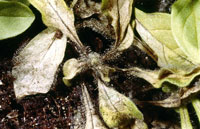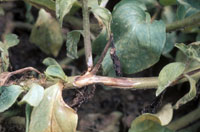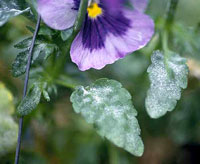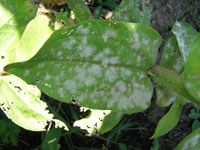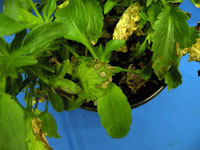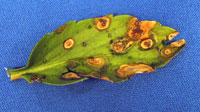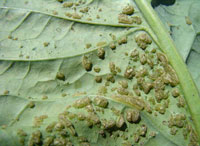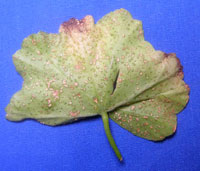Extension > Garden > Diagnose a problem > What's wrong with my plant? > Annuals and Perennials > Pansy > Blotches or spots on leaves
Pansy > Leaves > Blotches or spots on leaves
1 of 4
Gray Mold
Botrytis cinerea
- Brown spots or blotches on leaves or stems
- Brown spots or blotches on flowers; flowers drop off prematurely
- As disease progresses, entire leaves, flowers and shoots turn brown
- Gray fuzzy mold develops on rotted tissue under humid conditions
- Disease develops during cool, wet weather
- More information on Gray Mold
2 of 4
Powdery Mildew
Sphaerotheca macularis
- Powdery, fluffy white spots and blotches on leaves, stems, and flower parts
- Spots typically start on lower leaves but can spread to cover the entire plant
- Severely infected leaves may be completely covered in white or grayish white fungi
- In some cases, leaves become curled or twisted or turn yellow due to the infection
- Pansy cultivars vary in susceptibility to powdery mildew
- More information on Powdery Mildew
3 of 4
Anthracnose
Colletotrichum violae-tricoloris
- Tan to gray spots with dark margins on leaves
- Leaf spots may develop concentric rings like a bull’s eye as they grow larger
- Sunken brown to tan spots on stems
- Brown spotting may occur on flower petals
- More information on Anthracnose
4 of 4
Edema
- Pale-green to white blisters or bumps on the undersides of leaves
- Blisters brown with age and have a crusty or corky appearance
- Chews holes in blossoms
- Older leaves are more affected then younger ones
- Occurs when plants are overwatered during cool or humid weather
- More information on edema



